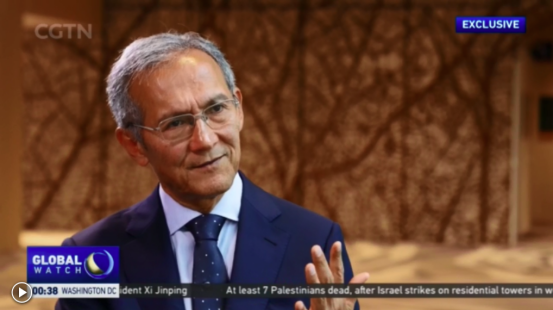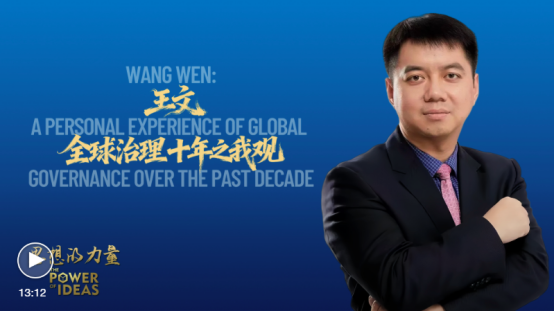VIDEOS
Your Present Location: VIDEOSGlobal Governance Initiative: Otorbaev: Global institutions must reflect today's economic landscape
Global Governance Initiative: Otorbaev: Global institutions must reflect today's economic landscape
Source: CGTN
Updated: 2025-09-15 21:33
Chinese President Xi Jinping has recently launched the Global Governance Initiative, calling on countries to work together for a more just and equitable global governance system. Our correspondent Miro Lu spoke with former Kyrgyz Prime Minister Djoomart Otorbaev for his insights into the significance of this initiative for the Global South.
MIRO LU CGTN Correspondent "In the recently closed Shanghai Cooperation Organization summit in Tianjin, Chinese President Xi Jinping launched this Global Governance Initiative. Now this is the fourth major framework Xi has introduced since 2021, after the Global Development, Global Security and Global Civilization Initiatives. What's your take on this?"
DJOOMART OTORBAEV Former Kyrgyz Prime Minister "It was quite a remarkable fact that many attendants of this summit endorsed this idea at the international level. And now it's time to discuss details and then to structure some kind of architecture, which will be the architecture of governance in the 21st Century. So, we have to shake the situation and say to ourselves, 'does the situation after the Second World War and current status are the same? If not, what can be adjusted? In that respect, the growth of the influence of the so-called Global South countries and regions will make the difference. One example is the composition of IMF voting rights not reflecting the current situation. A country like Belgium, which has 10 million people, has similar voting rights as a country that have a billion population. It should be readjusted, reflecting the changing of the economic landscape."
MIRO LU CGTN Correspondent "The critics are saying that SCO's ability to lead global governance reform remains constrained by internal fragmentation and external skepticism. So, as a grouping, yes, no doubt we have grown quite a bit, but we have limited institutional capability. So, what needs to be done to attract more members, to have more influence on the global stage?"
DJOOMART OTORBAEV Former Kyrgyz Prime Minister "In the case of SCO, the decisions are made on a consensus basis. So each country has veto rights. If you talk only four, or five, it's easier than if you have 10 different ideas. The dilemma in how to strengthen the institution, not to lose the speed, not to lose the quality of decisions. Some countries say, okay, let's make it bigger, more influential. But some say, okay, then we will not make decisions, we'll be too big. Because there will be different interests, different political considerations. It should be a step-by-step process. For example, the European Union was created in a course of 40 years. And Shanghai Cooperation Organization is only 25 years. Every year, it will be strengthened. That is what we see, what we observe from Tianjin."
Key Words: Global Governance, Otobaev, Economic
























































































 京公网安备 11010802037854号
京公网安备 11010802037854号





